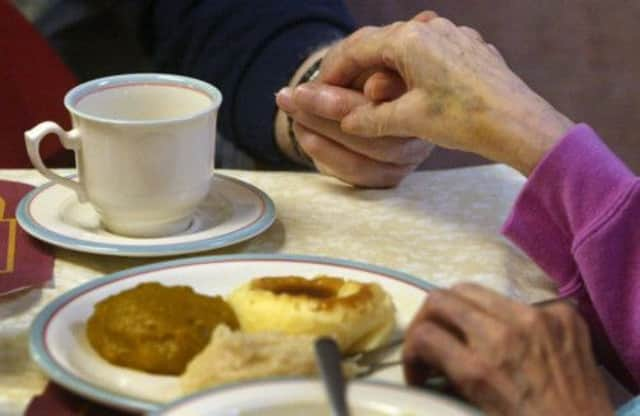Hospices should give volunteers a greater role


Hospices have a long and proud history of volunteer involvement. Indeed, many hospices have been founded by volunteers – people who have either been moved by personal experience of a loved one using a hospice or have identified a need in their local area which they perceive is not being met.
Volunteers today fulfil many and diverse roles in hospices, where they supporting patients in practical ways; working in day care and in patient units, helping with administration, housekeeping, gardening, driving, providing complementary therapies, offering bereavement support, fundraising and running charity shops to name but a few. Aside from the wealth of skills and life experience which volunteers bring to hospices, they play a key role in embedding hospices within their local communities, helping to break down the barriers that surround them, and making them more accessible to patients and their families.
Advertisement
Hide AdAdvertisement
Hide AdHospice volunteers frequently support these organisations over many years, committing time on a regular basis. Help the Hospices estimated in 2006 that there were in the region of 100,000 volunteers providing services with economic value of £112 million. Without this significant commitment of time and effort from volunteers, the organisation worked out, hospice costs would increase by almost one quarter.


This estimate is now some years out of date and it is likely that this is now a very conservative one. Indeed frequently hospices are heard to say that without their volunteers they would not be able to provide the range of care and support that they currently do.
What is interesting, however, is that whilst volunteers assume responsibility for the governance of hospices in their role as trustees, with the accompanying legal and strategic requirements of such a position, there are still many barriers to volunteers becoming involved in meaningful roles in care. This means in practice that too many people with significant skills and talents are involved in important but nonetheless peripheral roles when it comes to people at the end of life.
The Commission into the Future of Hospice Care has identified volunteering as a key component in the future development of hospices if they are to fully meet the needs of the people they seek to care for. With an ageing population, the incidence of people living longer with complex life-shortening conditions is set to rise, thus increasing demand for hospice services in the future.
Volunteers, a key part of hospice life to date, therefore have a key role to play in the future, bringing skills and experience to hospices to complement those of paid staff. Might it not be a volunteer who walks alongside a patient and family during their journey to the end of life, helping them to negotiate the complex world of health and social care? Might it not be a volunteer who can add support to the professional hospice team sitting with a patient at the end of life? Might it not be a volunteer in the community trained to support patients and families who can alert professionals to the needs of the patient and family? Might it not be a skilled volunteer who can, along with support from the professional team, help a patient to die at home?
The arguments against these suggestions are many and well rehearsed: some claim that volunteers don’t have the skills, others that they don’t have the time, and still more wonder what this would mean for professional roles. But let us be clear: we are not talking about job substitution, but about fully integrating volunteers as a complementary and unique part of the hospice team.
We are talking about multiplying the skills of the professional team and providing more choice for more people at that most important of times – when they are facing the end of life. But volunteers wouldn’t want to do it, I hear you say. Yet they do this successfully in some countries in Europe and in other parts of the world, so why not in Scotland? And more importantly – have we asked our volunteers?
I believe that volunteers can do more than we currently ask of them with the right selection, training, support and empowerment from staff. So let’s open our minds, and our imaginations in hospices in Scotland – and indeed the whole of the UK – to create a new future for hospice care together in true partnership with our volunteers.
• Ros Scott is Director of Organisational Development at Children’s Hospice Association Scotland (CHAS) www.chas.org.uk• More information on becoming a Friend of The Scotsman